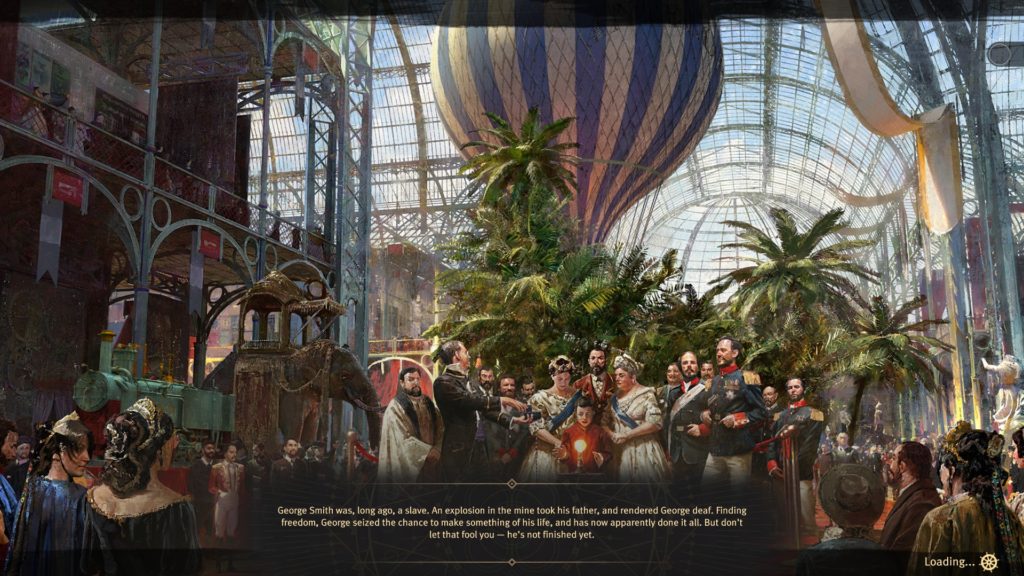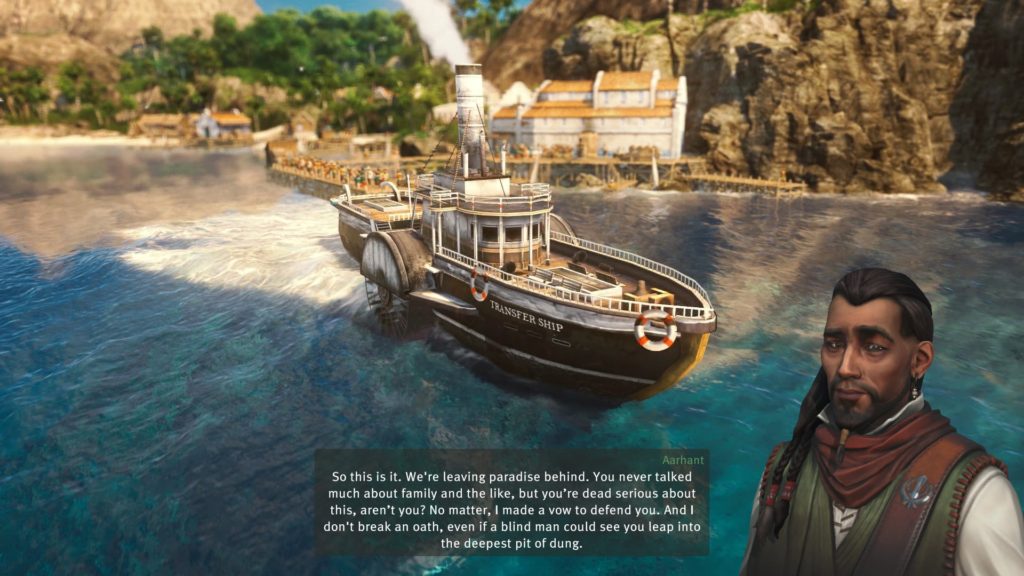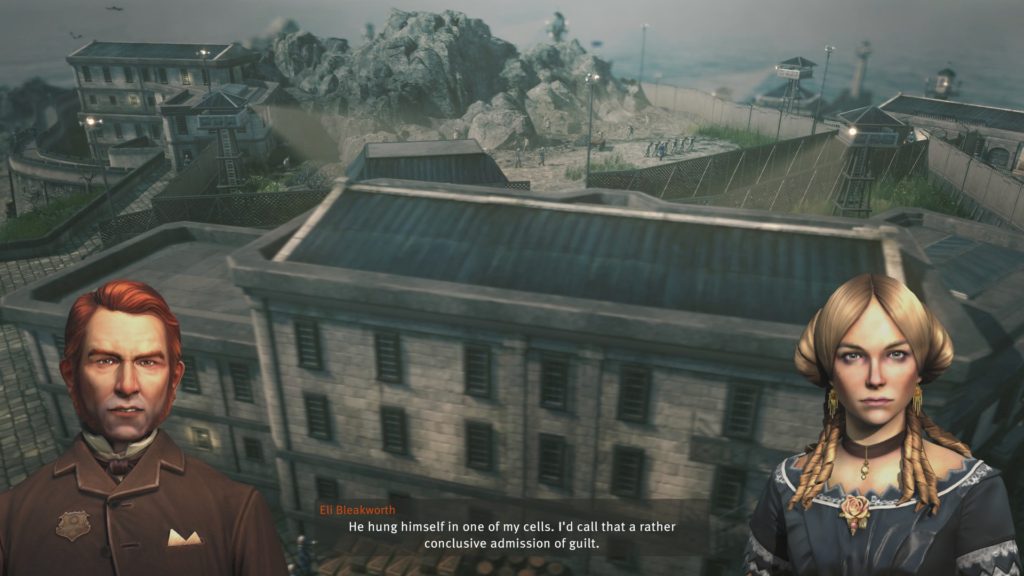Time to fire up the coal engines, bring out the schnapps and push your little village into the Industrial Revolution. Ubisoft delivered another installment of the infamous Anno-series, this time centered around the 1800s, with the Industrial Revolution as the head theme. We had the pleasure to play the full game, instead of the Beta-release that was playable all weekend. And boy, did we have fun with this in-depth simulation strategy game. All aboard!
Anno .. what?
For those unfamiliar with the game: Anno is a real-time strategy, city building video game series, conceived in 1998 by Max Design. The series focuses on players establishing colonies on a series of small islands, conducting exploration of the region, diplomacy, and trade with other civilizations and traders while managing resources and engaging in combat both on land and sea. The games spawn from the 1400s till the 1800s, teaching us a little bit about history and how society developed into what it is nowadays. There are even two entries exploring the big ‘what if’ question, setting the series into the future (2070 and 2205). I personally thought the last one, 2205, was one of the best Anno’s to date – but Anno 1800 is one to rival this claim.
Each game in the series is mainly a stand-alone title, featuring the same level of reoccurring gameplay mechanics, though with each installment amending existing gameplay mechanics and adding new features, with expansions packs adding in further content. Initial games mainly focused on two modes of gameplay, with players able to operate in single-player or multiplayer over LAN or online connections, while later titles added in a campaign mode of several missions, each featuring their own unique storyline – plots usually focus on players becoming involved in a major incident while beginning life as the ruler of a small island.
Anno 1800 – The story so far.
Anno 1800’s story-based campaign combines the player freedom of Sandbox mode with a stronger emphasis on the narrative side, taking players onto a journey to the late nineteenth century. The campaign is also a great starting point for newcomers, as it teaches them all of the game’s mechanics and systems during its four chapters. Players still have the option to fully customize their campaign experience, including the selection of which NPC adversaries they want inhabiting their world.
You and your soulmate Aarhantare out in the tropics, living it easy, far from any responsibility. That is until a tear-stained letter from your sister Hannah changes your life… She writes that your father, owner of respected shipping company Goode & Sons, has been imprisoned on suspicion of treason, pending trial. She is desperate for you to return, so you catch the next boat home. And here the story starts to grow into an Anno worth story. On return to the Old World, you find your father is dead. People are saying he was unable to bear the guilt… Your cruel Uncle Edvard meanwhile, has wasted no time in seizing control of Goode & Sons, and cannot conceal his disgust that you and Hannah are busy setting up a rival company. In spite of your Uncle’s constant interference, you manage to obtain a shipping license from the Queen’s advisor, Sir Archibald’s Blake, to operate a shipyard from the modest island of Ditchwater.
Enter Ditchwater, a small shipyard-turned-town which will be developed into a full-scale Industrial metropolis – at least that’s the premise of the game. You start with developing some farmer houses, providing them with jobs in your lumber mills and docks. But your townsfolk need clothes, entertainment, and other luxury goods. Anno introduces these step by step, but also offers a very harsh learning curve. You will have to plan out a city structure before even attempting to build a city. If you don’t, you will run into problems with space, pollution (when building factories) or shortages due to great of a distance between goods and consumer. And when you think you have had it all, you are given another plot twist, which will give access to naval combat and other features, not unknown to Anno players.
Anno Sandbox
The feature Anno made its name with was the sandbox mode. It offers an endlessly customizable mode thanks to a wide range of settings and randomly generated maps, it is the mode that most players will spend the majority of their Anno playtime in. You can create a custom-tailored challenge, including a variety of starting (island sizes, fertilities, how often city incidents occur, etc.) and victory conditions. You can also configure which NPC rivals and AI factions (such as traders and pirates) you want to share your game world with. This will directly affect game difficulty even beyond the overall preset, as each NPC has a different personality (from friendly to overly aggressive).
I personally enjoyed playing sandbox in Anno 1800 more than in Anno 2205. Most of the options you will use to upgrade your town to a city are recognizable. If you studied a little bit of history during your life, you know that the Industrial Revolution happened because of steam, coal, and iron. So if you want to make your town work – you will have to focus on the basics first. Provide a town with food, clothes, booze, and safety, and Anno will grant you access to a ‘workforce’. Farmers will turn into workers and are able to process coal and clay. With those in hand bricks, factories, guns, and other industrial goods are within reach. Anno really tries to stay true to the English Industrial Revolutionary roots. I’ll give you a small example.
Anno 1800 Basics:
The basic needs for creating a wealthy industrial town in Anno are:
- Textiles – From sheep towards clothing and sails. Mechanized cotton spinning powered by steam or water increased the output of a worker by a factor of around 500. The power loom increased the output of a worker by a factor of over 40.
- Steam power – the efficiency of steam engines increased so that they used between one-fifth and one-tenth as much fuel. The adaptation of stationary steam engines to a rotary motion made them suitable for industrial uses. The high-pressure engine had a high power to weight ratio, making it suitable for transportation. Steam power underwent a rapid expansion after 1800. Anno shows this in the form of needed workers vs. farmers for certain tasks.
- Ironmaking – the substitution of coke for charcoal greatly lowered the fuel cost of pig iron and wrought iron production. Using coke also allowed larger blast furnaces, resulting in economies of scale. In game this means – less wood, more coal mining. The steam engine began being used to pump water and to power blast air in the mid-1750s, enabling a large increase in iron production by overcoming the limitation of water power. The cast iron blowing cylinder was first used in 1760. It was later improved by making it double acting, which allowed higher blast furnace temperatures. The puddling process produced a structural grade iron at a lower cost than the finery forge. The rolling mill was fifteen times faster than hammering wrought iron. Hot blast (1828) greatly increased fuel efficiency in iron production in the following decades.
- The invention of machine tools – The first machine tools were invented. These included the screw-cutting lathe, cylinder boring machine, and the milling machine. Machine tools made the economical manufacture of precision metal parts possible, although it took several decades to develop effective techniques. In Anno, this means flour mills, oil drilling, and iron factories.
Anno Negatives?
There are two problems with Anno. The first: it’s really unforgiving in its learning curve. When you don’t plan ahead, you will have to start over or break down a great part of your city (and lose a lot of money). Think before you build – recon before you decide. The second: each game in the series is mainly a stand-alone title, featuring the same level of reoccurring gameplay mechanics. Yes, I already mentioned this, but it’s true. Every Anno game is the same, repeating the same principle and the same mechanics. Yes, they really did a good job on upgrading the graphics, the interface (it works a lot smoother than in Anno 2205), but it’s still the same Anno engine. This does not change my view, but I will have to deduct a little bit of my otherwise high score. Anno 1800 is a really solid entry into the series, with a nicely fleshed out story mode. I highly recommend you play this entry if you have any interest in Industrial history (or any interest in History whatsoever). Oh and you can always watch some crash course on this topic.







